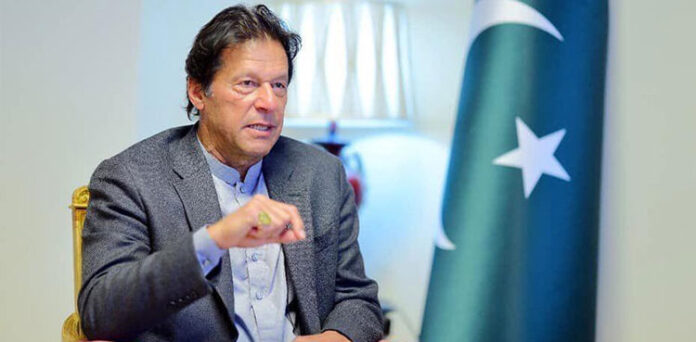Prime Minister Imran Khan said on Friday the country’s economic indicators have improved despite the difficulties that the Pakistan Tehreek-e-Insaf (PTI) government endured during its first year in power.
Addressing the signing ceremony of Super-6 310-MW Wind Power Projects in Islamabad, the premier said, “Our first year was very difficult because there was a very large current account deficit.”
He added that previously, no government had to face a current account deficit of $20 billion.
“The danger of this is that, at any time, it can put so much pressure on the rupee that the rupee starts to fall. We didn’t have the foreign exchange to stop the rupee from falling.”
Thanking his economic team, Prime Minister Imran said that today the economy has stabilised.
“Today without any support, instead of falling, our rupee is gaining. The stock market reflects the sentiment of the market, it has become positive.”
He said that among the main indicators, current account deficit has fallen, exports are rising, and investor confidence is increasing.
“So, thank God our direction now is fine,” the premier said. “Now we have to go forward from here … we have to run our economy.”
At the outset of his address, the premier added that the route to China’s success was its long-term planning.
“When we asked them what their route to success was, there were other things, but the one thing that stood out was long term planning.
“Unfortunately, we focus on short term planning,” he added.
On Wednesday, the premier had said now that his economic team had “stabilised the economy”, the government was focusing on creating job opportunities and facilitating investors.
Speaking at Sino-Pak Tire Manufacturing Joint Venture Signing Ceremony, Prime Minister Imran had said that the government’s “next challenge” was to provide jobs to the people and, in order to create employment opportunities, the country needs investors to invest money.




